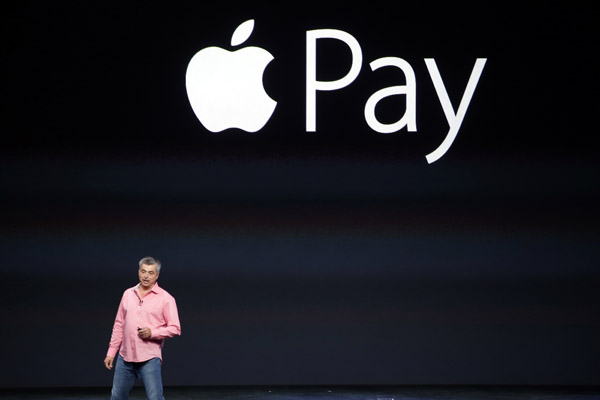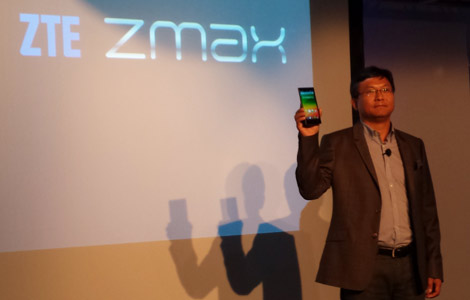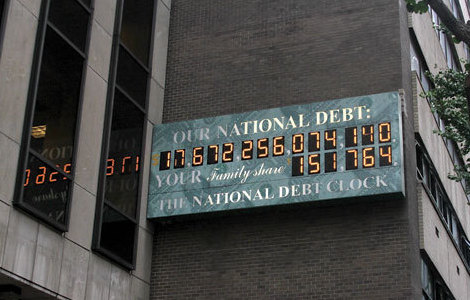Apple Pay eyes inroads to China
Updated: 2014-09-16 11:13
By Lian Zi in San Francisco(China Daily USA)
|
||||||||
 |
|
Eddy Cue, Apple's senior vice president of Internet Software and Service, introduces Apple Pay during an Apple event at the Flint Center in Cupertino, California, September 9, 2014. Stephen Lam / Reuters |
It may not be the next big thing, but Apple is hoping a new iPhone app will carve out a new niche.
"Now payments happen with a singletouch" reads the advertisement for the new Apple Pay, a mobile payment service that comes with the new iPhone 6 and iPhone 6 Plus and allows users to pay in "an easy, secure, and private way".
In the US, Apple has partnered with American Express, MasterCard and Visa for digital debit cards and credit cards. In addition, the six biggest issuing banks in the US - American Express, Bank of America, Capital One, Chase, Citi and Wells Fargo - are all also on board, according to Apple.com.
According to Caixin Media, Apple has a plan in place to begin to expand its mobile wallet service internationally to China through partner China UnionPay, a Chinese state-backed bankcard association, but this has yet to be confirmed by either Apple or UnionPay.
Experts and industry insiders are bullish on the cooperation between Apple and UnionPay if it should happen.
"I would not be surprised if Apple collaborates with UnionPay to enter the Chinese market," said Wang Xiao, CEO of Innospring, a Silicon Valley-based technology incubator, adding that sales of Apple products in China have already become one of the most important parts of Apple's revenues.
"Because the infrastructures are totally different in China and the US, Apple should find a local player like UnionPay to further collaborate with other local merchants," said Wang.
By cooperating with UnionPay, Apple could directly and easily reach its target consumers so as to generate a single and simple mobile payment eco-system in China, which would be good for the whole industry, according to Wang.
Since security is one of the chief concerns of Chinese customers, ApplePay has already set the security and privacy benchmarks for digital wallets much higher to provide the peace of mind necessary to make payment both safe and easy for consumers, said Waiman Lam, senior director of Wireless, ZTE USA.
Cloud services always have risk, he said, the key is how to minimize it.
With Apple Pay, instead of using actual credit anddebit card numbers when customers add their card,a unique device account number is assigned, encrypted and securely stored in a dedicated chip in the iPhone. These numbers are never stored on Appleservers.
When a user makes apurchase, the deviceaccount number alongside a transaction-specific dynamic security code is used to process the payment. So the actual credit or debit card numbers are never shared with merchants or transmitted withpayment, according to Apple. If a user loses an iPhone, they can use find my iPhone to suspend all payments from the device.
In China, large mobile companies have already developed mobile payment and applied it to their products, said Lam, adding that the Apple Pay is not only cooperating with banks, but also with merchants, which is different from other mobile payment services provided by Chinese mobile companies.
According to Lam, ZTE also launched its iPay, a payment system providing threeareasofmobile paymentproducts, includingmobile paymentsolutions:City Card for the public market,SmartCardfor the industrial marketandMobile Money, which realizes various proximity and remote payment applications.
zilian@chinadailyusa.com
(China Daily USA 09/16/2014 page1)

 President Xi and wife play swing in Modi's home state
President Xi and wife play swing in Modi's home state
 PLA's 'Gold Helmet' air battle contest takes off
PLA's 'Gold Helmet' air battle contest takes off
 Chinese companies in US urged to learn employment laws
Chinese companies in US urged to learn employment laws
 Get together in space: experts
Get together in space: experts
 FTA high on agenda of China, Sri Lanka
FTA high on agenda of China, Sri Lanka
 ZTE's ZMAX makes debut
ZTE's ZMAX makes debut
 Tian'anmen Square dresses up for National Day
Tian'anmen Square dresses up for National Day
 China sells off US Treasuries, for 2nd month
China sells off US Treasuries, for 2nd month
Most Viewed
Editor's Picks

|

|

|

|

|

|
Today's Top News
Xi, Modi set friendly tone for visit
Chinese naval chief debuts at Seapower forum
Chinese like trade, FDI, not acquisitions: Survey
Multilingual services bills on Brown's desk
Baidu speeds up online commerce
Ma named 'Asia Game Changer of the Year'
FDI dips for 2nd straight month
SF airport launches bilingual website for Chinese tourists
US Weekly

|

|







